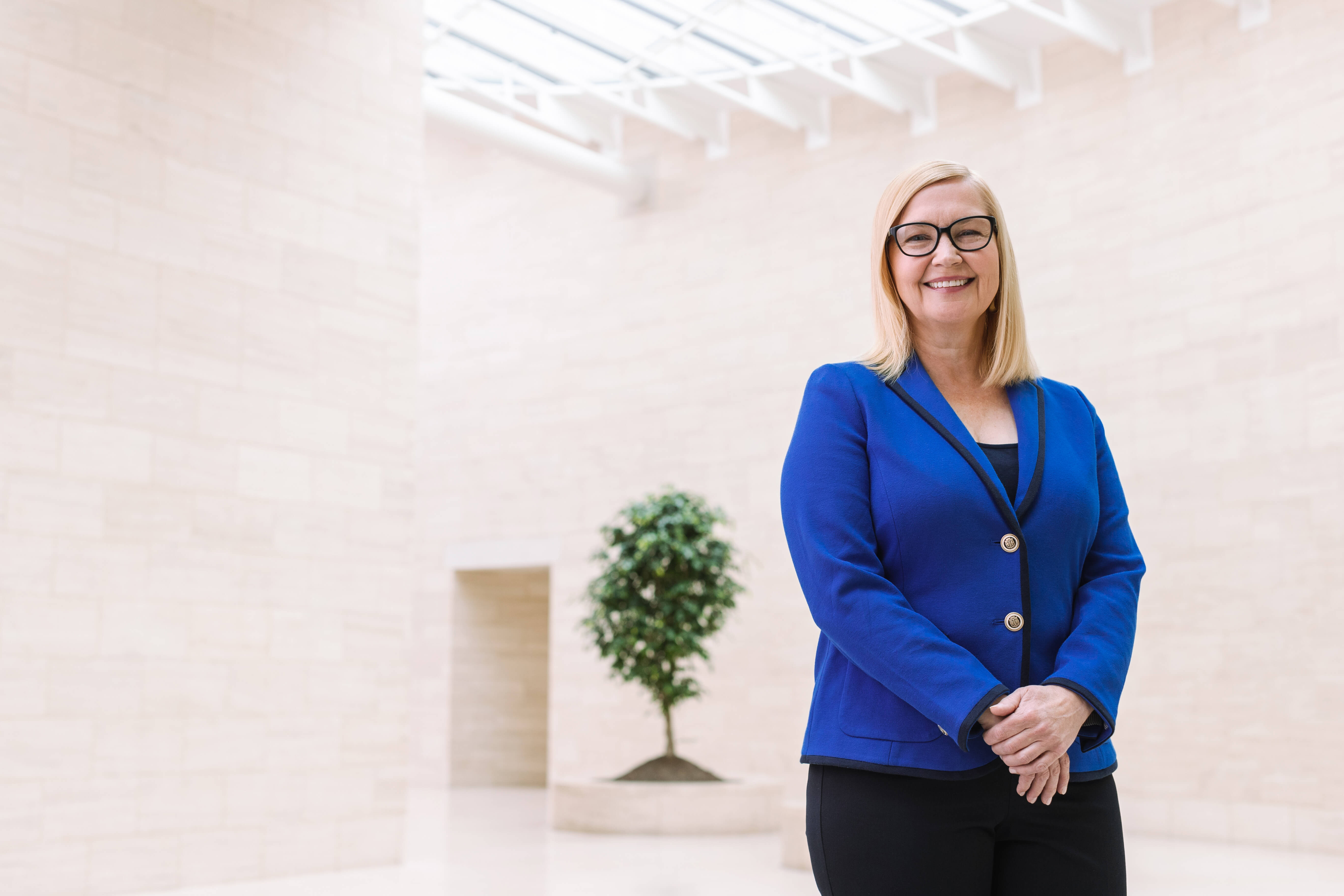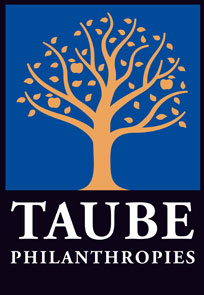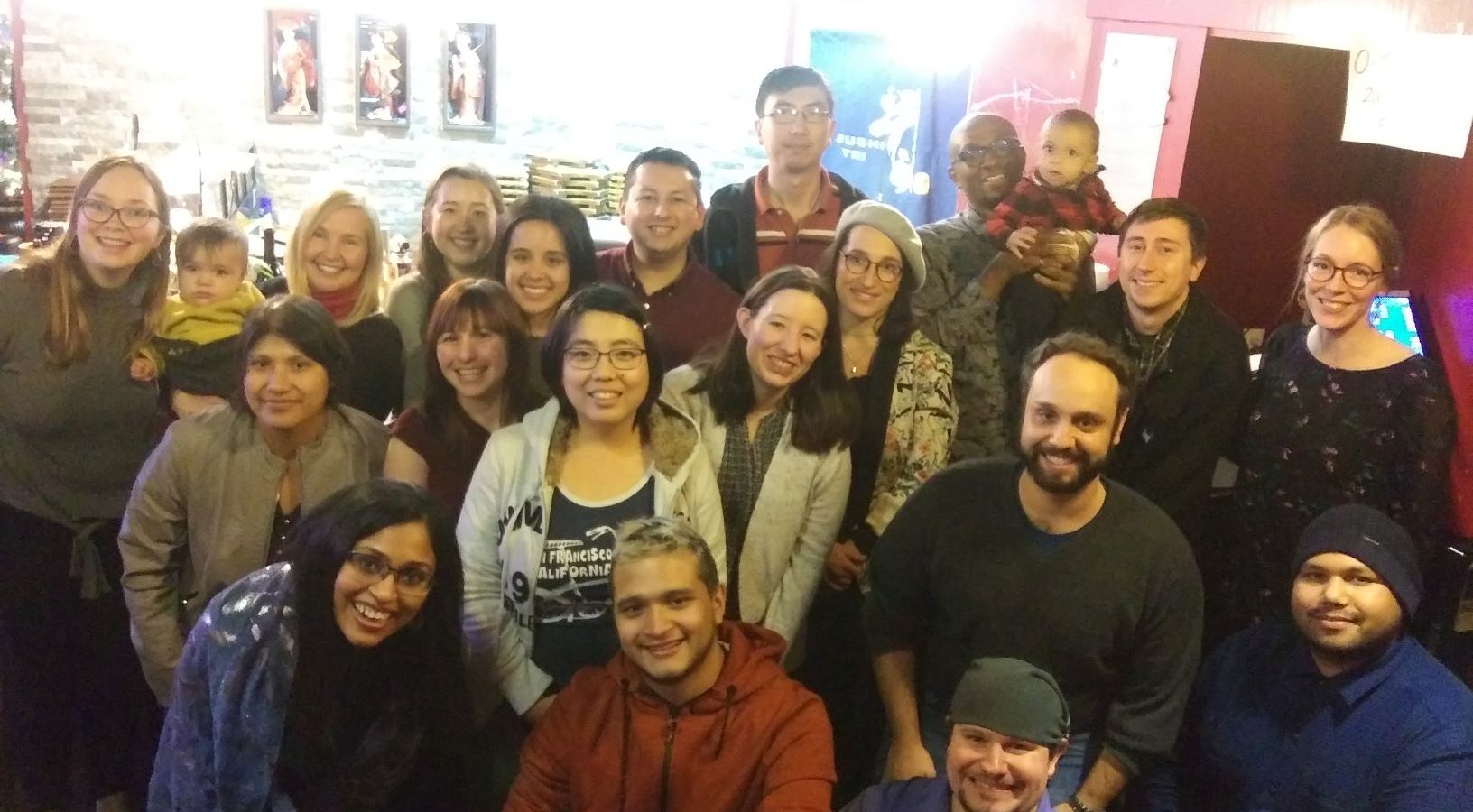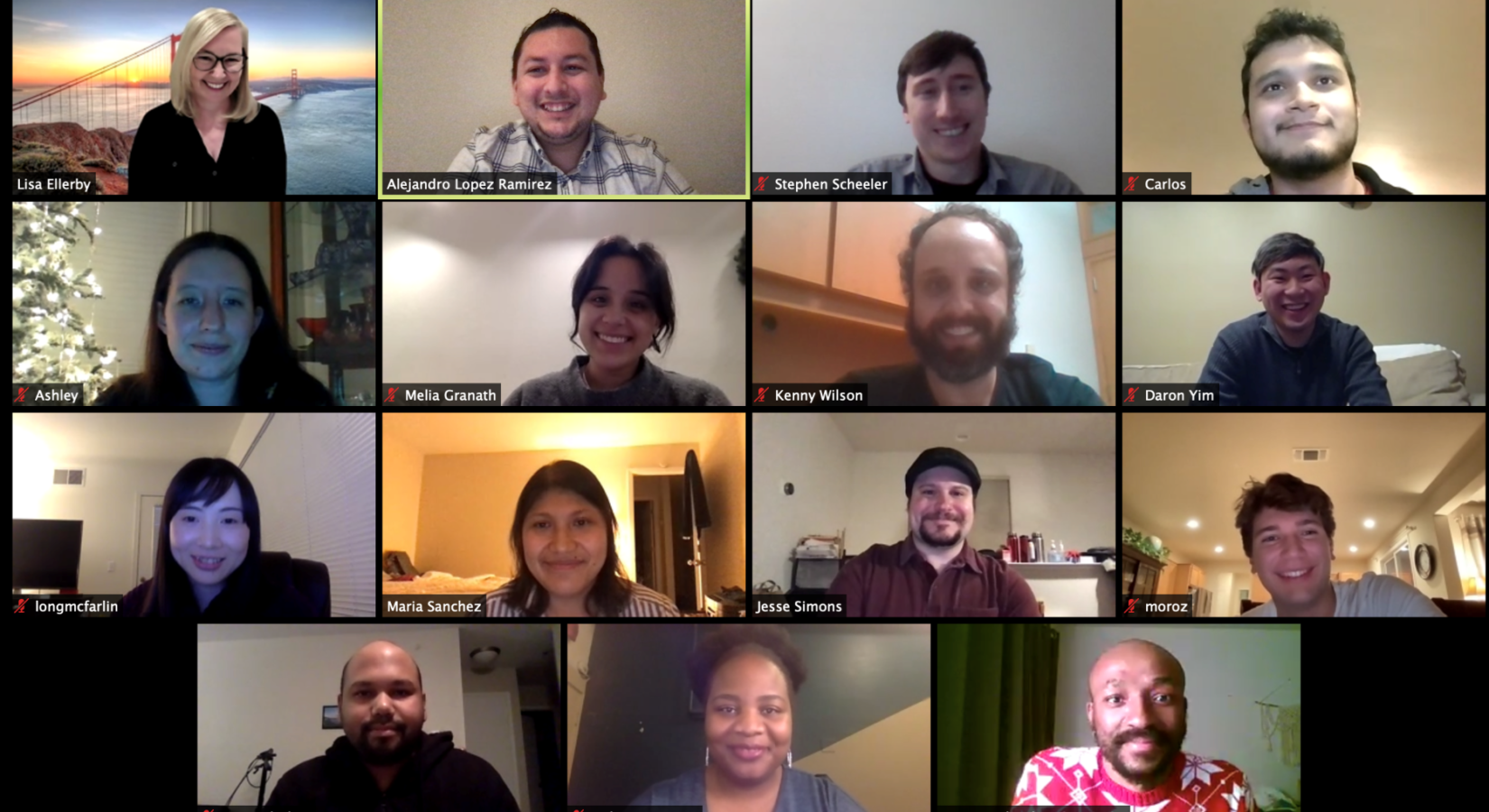ELLERBY LAB
Lab focus
Many diseases that impact brain function develop during aging and affect the quality of life and our ability to live a successful healthy lifespan. These neurological diseases include Huntington’s, Alzheimer’s, and Parkinson’s. The Ellerby lab focuses on understanding the fundamental mechanisms that lead to age-related neurodegenerative diseases and identifying new therapeutic targets for these diseases. We are excited to use new technologies to interrogate why these neurological diseases are so abundant as we age and identify small molecule or protein therapeutics for these diseases. Induced pluripotent stem cells (iPSC) derived from patient cells, genomics, proteomics, small molecule screens, single cell analysis, and CRISPR/Cas9 are all technologies applied to deepen our understanding of these diseases and aging.
Why it matters
The societal burden of neurological disorders such as Alzheimer’s disease and related diseases of the brain is profound. The demographic change in the age structure of populations in developed nations has a huge impact on society and the economy. The approaches utilized in the Ellerby lab are aimed at identifying therapeutic targets and drugs and moving toward phase I clinical trials for neurological diseases.
New technologies are dramatically enhancing our ability to understand and alter the underlying causes of aging and neurodegenerative diseases. There’s a palpable sense of excitement for what is possible.
Lisa Ellerby, PhD
CENTER DETAILS
Dr. Ellerby grew up in the Bay Area and received her PhD in chemistry from the University of California, Santa Cruz. She carried out her postdoctoral training at the University of California, Los Angeles. During her postdoctoral training with National Academy member Dr. Joan Valentine, she studied the mechanism of superoxide dismutase and invented a novel biosensor technology published in Science. She also received an American Cancer Society fellowship for her research. Lisa Ellerby is a founding faculty member at the Buck Institute.
Dr. Ellerby has published more than 100 scientific papers and holds more than eight patents. She has served on the National Institutes of Health study group for over 15 years and also serves on review boards for numerous nonprofits, including the Huntington’s Disease Society of America, French National Research Agency, National Ataxia Foundation, and Hereditary Disease Foundation. She was an editorial board member of the Journal of Biological Sciences for 15 years and is currently an associate editor for the Journal of Huntington’s Disease. Dr. Ellerby has experience working with biotech companies and has been funded by companies such as BioMarin.
-
 Carlos Galicia Aguirre Postdoctoral Researcher
Carlos Galicia Aguirre Postdoctoral ResearcherDuring his PhD, Carlos employed omics-based technologies and computational approaches to elucidate the molecular changes that occur in neurodegenerative diseases and the impact that senescent cells have on the brain. He is currently interested in advancing novel methodologies to quantify age-related functional decline at the cellular level and identify therapies that restore cellular function.
CGaliciaAguirre@buckinstitute.org
-
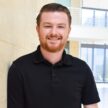 Harrison Baker Research Associate
Harrison Baker Research AssociateHarrison graduated from UC Davis in 2020 with a BS in neurobiology, physiology, and behavior. His passion for studying age related diseases started in his AP Psychology class in high school in Petaluma, CA. Outside of science, Harrison's hobbies include: fishing, hiking, camping, video games, and lacrosse. As a Research Associate 1 in the Ellerby lab at the Buck institute, Harrison believes that his passion for the field will only thrive that much more.
HBaker@buckinstitute.org
-
 Elena Battistoni Research Associate
Elena Battistoni Research AssociateElena Battistoni is a Research Associate in the Ellerby Lab. She obtained her undergraduate degree in justice, community and leadership from Saint Mary’s College of California in 2019 and her master's degree in biological sciences from Dominican University of California in 2022.
EBattistoni@buckinstitute.org
-
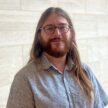 Nicholas Devanney, PhD Postdoctoral Researcher
Nicholas Devanney, PhD Postdoctoral ResearcherNick carried out his undergraduate studies at the University of New Hampshire (UNH), majoring in Biochemistry, Molecular, and Cellular Biology. While at UNH, Nick completed an honors thesis investigating the tumor suppressor p53 in the laboratory of Dr. Charles Walker. After graduating, Nick spent three years as a Research Assistant under the supervision of Dr. Basile Tarchini at the Jackson Laboratory, utilizing novel transgenic mouse models to study hereditary hearing loss and developmental biology of the inner ear. Nick completed his Ph.D. at the University of Kentucky in the laboratory of Dr. Lance Johnson, a lab focused on apolipoprotein E (APOE) - the strongest genetic risk factor for late-onset Alzheimer's Disease. Nick's work tied together APOE's effect on metabolism in microglia with neuroinflammation, a concept known as 'immunometabolism'. Joining the Ellerby lab as a postdoc, Nick is excited to continue to work on APOE, leveraging the lab's iPSC lines. This time around, the focus will be more towards understanding the E2 allele (associated with longevity and neuroprotection) rather than focusing as heavily on the E4 allele (associated with neurodegeneration). In order to take advantage of the tremendous resources available at the Buck, Nick will be co-mentored by Drs. Eric Verdin and Birgit Schilling, allowing him to continue to hone his skills on mass spectrometry and utilize a multi-omics approach to dig further into immunometabolism in AD and aging. Outside of lab, Nick is an avid nature enthusiast and lifelong musician, spending his free time immersed in the outdoors or traveling to concerts.
NDevanney@buckinstitute.org
-
 Cristian Geronimo-Olvera, PhD Postdoctoral Researcher
Cristian Geronimo-Olvera, PhD Postdoctoral ResearcherCristian obtained his MSc and PhD degrees in biochemistry from Universidad Nacional Autónoma de México (UNAM). His research focused on cellular and molecular mechanisms underlying the neuronal damage induced by energy stress. Then he moved to Chile to work as postdoctoral fellow at both Center for Integrative Biology and the FONDAP Geroscience Center for Brain Health and Metabolism. In 2022, Cristian joined Dr. Ellerby lab as a Postdoctoral Research Fellow to work on the mechanisms associated to cellular senescence induced by genetic risk factors in late-onset Alzheimer’s disease.
CGeronimoOlvera@buckinstitute.org
-
 Mikayla Hady Postbacc
Mikayla Hady PostbaccMikayla is a postbacc for the Benz and Ellerby labs. She received a bachelor's degree in biochemistry and molecular biology with a minor in neuroscience from the University of Wisconsin- Eau Claire. While not in the lab, she enjoys running, reading, and cooking.
MHady@buckinstitute.org
-
 Rais Reskiawan Kadir, PhD Postdoctoral Researcher
Rais Reskiawan Kadir, PhD Postdoctoral ResearcherRais completed his Medical Doctor degree from University of Hasanuddin, Indonesia, and his PhD from University of Nottingham, UK. His research focused on developing Endothelial Progenitor Cells as a novel cell-based therapy to repair blood-brain barrier in ischemic stroke condition. During his PhD, he also observed that stem cells undergo a substantial decline in function as they age, leading him to explore the underlying mechanism of cellular senescence. His curiosity and passion in aging then drew him to Buck institute, working under Ellerby Lab.
RKadir@buckinstitute.org
-
 Sally Mak, PhD Administrative Lab Manager
Sally Mak, PhD Administrative Lab ManagerDr. Mak is the administrative lab manager in the Ellerby Lab with extensive molecular and biochemical studies in neurodegenerative disease, especially in Parkinson's Disease. Before joining the Buck Institute, she was a staff scientist at UC Davis, Parkinson’s Institute, and SRI International. Dr. Mak's primary job duty in the Ellerby lab is to manage the laboratory and assist in the research of her lab members.
SMak@buckinstitute.org
-
 Tyne McHugh PhD student, USC-Buck Biology of Aging Program
Tyne McHugh PhD student, USC-Buck Biology of Aging ProgramTyne received a BA in Molecular and Cell Biology with an emphasis in Neurobiology from UC Berkeley. After graduating, she joined Dr. Frank Longo’s lab at Stanford University, which focuses on developing small molecules to modulate key signaling pathways involved in neurodegeneration. Tyne studied compounds that improve cholinergic neuron integrity and preserve interneuron morphology in Alzheimer’s disease mouse models. Currently, Tyne is pursuing a PhD in the Biology of Aging program at USC, working in Dr. Ellerby’s lab. Her research uses iPSC-derived neurons to uncover the cellular and molecular mechanisms underlying APOE2’s protective effects against neuronal dysfunction, focusing on synapse function in aging and Alzheimer’s disease.
tmchugh@buckinstitute.org
-
 Brian Rossmiller Postdoctoral Researcher
Brian Rossmiller Postdoctoral ResearcherBrian completed his PhD in molecular genetics and microbiology at the University of Florida. His work has focused on the development of gene therapy and gene editing approaches for ocular neurodegenerative diseases. His interest in ageing and expanding into the treatment of debilitating neurodegenerative diseases of the CNS has led him to join the Ellerby lab.
BRossmiller@buckinstitute.org
-
 Anja Sandholm Postbaccalaureate Researcher
Anja Sandholm Postbaccalaureate ResearcherAnja is a postbaccalaureate researcher in the Campisi and Ellerby labs. She graduated with a degree in biochemistry and a minor in math from Walla Walla University in 2024. During her undergraduate studies, she completed two summers at Harvard Medical School and Boston Children’s Hospital researching sudden unexplained infant death. At the Buck, she is interested in the role of oligodendrocytes in Alzheimer’s Disease.
asandholm@buckinstitute.org
-
 Kizito-Tshitoko Tshilenge, PhD Postdoctoral Researcher
Kizito-Tshitoko Tshilenge, PhD Postdoctoral ResearcherDr. Kizito-Tshitoko came to the Buck from the University of Nantes, France, where he obtained his PhD in molecular biology, working on a project involving gene therapy for inherited retinal dystrophies (IRDs). Specifically, he evaluated the use of an adeno-associated virus-based nanocarrier to deliver therapeutic nucleic acids and restore visual function in large animal models of IRDs. He was drawn to the Ellerby lab as a postdoctoral scholar because he wanted to continue working on the nervous system and neurological dysfunction. His project in the lab is studying molecular mechanisms of neurodegeneration in Huntington's disease (HD) using human induced pluripotent stem cell (iPSC) derived from HD patients. Specifically, he is focused on understanding how neural stem cells derived from HD patients are altered and cause disease when they are differentiated into affected cell types such as medium spiny neurons.
KTshilenge@buckinstitute.org
-
 Kenneth Wilson, PhD Postdoctoral Researcher
Kenneth Wilson, PhD Postdoctoral ResearcherKenneth received his bachelor’s degree in molecular and cell biology from University of California Berkeley, his master’s degree in biological sciences from Dominican University of California and his PhD from University of Southern California. His current research focuses on understanding how natural genetic variation can influence response to diet to affect longevity and health.
KWilson@buckinstitute.org
-
T. A.Tanimul Alam, PhD Postdoctoral Research Fellow
Dr. Tanimul Alam was a postdoctoral research fellow at the Prof. Lisa Ellerby lab. His research focused on analysis of signaling pathways in neurodegenerative disorders using iPS cells and CRISPR technologies. Previously, he worked on neural aging in C. elegans with Prof. Leonard Guarente as a postdoctoral researcher at MIT. Dr. Alam obtained his PhD at Nagoya University in Japan, where he studied neural regeneration in C. elegans. In his academic career, he received Japan Society for the Promotion of Science (JSPS) fellowship and Toyobo Biotechnology Foundation Fellowship.
-
L. M.Lakshika Madushani
Lakshika Madushani attained her B.S. from UC Santa Cruz in Molecular Cell and Developmental Biology. She is currently completing her Master's in Biology from Dominican University of California and working in Dr. Ellerby's lab investigating the role of Matrix Metalloproteinases in Huntington's Disease using stem cell and mouse models.
-
M. G.Melia Granath-Panelo
Melia joined the Ellerby lab as a Dominican University Master’s student in the Fall of 2019. She graduated with a degree in biochemistry from Saint Mary’s College of California, where her research focused on stem cells and regenerative medicine. In the Ellerby lab, her research utilized induced pluripotent stem cells to try to discover potential treatments for Huntington’s disease.
-
L. M.Long McFarlin
Long obtained her bachelor’s degree from China Pharmaceutical University, where she discovered her passion for pharmacology. Later, she joined the Pharmacology and Toxicology PhD program at the University of Kansas, where she worked on multiple projects elucidating the risk mechanisms and molecular pathology of Alzheimer’s disease. After graduation, she started her postdoctoral training at UCSF and her research focused on Parkinson’s disease and ischemic stroke. In Dr. Ellerby’s lab, she studied the role of cellular senescence in Alzheimer’s disease utilizing single cell genomics, in combination with induced pluripotent stem cells.
-
R. O.Robert O’Brien, PhD
Robert O'Brien received his BS in Biological Sciences from the University of Vermont, where his undergraduate research training focused on forward and reverse genetic techniques to study the symbiotic relationship between legumes and the soil bacterium Rhizobium. He received his PhD from the University of California, San Diego, where he used mass spectrometry to study post-translational regulation of proteins in embryonic stem cells. His work in the Ellerby Lab focuses on understanding the role that post-translational modifications of the protein that causes Huntington's Disease (huntingtin) play in the toxicity of the protein. Specifically, examining interactions of caspase cleavage products of huntingtin in mouse models of HD and the role of acetylation in the turnover of huntingtin in cell culture-based models of the disease.
-
K. R.Karen Ring, PhD
Karen Ring received her PhD in biomedical sciences from the University of California, San Francisco in the laboratory of Dr. Yadong Huang. Her thesis research identified a novel way to directly reprogram mouse and human fibroblasts into induced neural stem cells. As a postdoctoral scholar in Dr. Lisa Ellerby's lab, Karen continues her passion for regenerative medicine and neuroscience by studying molecular mechanisms behind Huntington's disease (HD) using human induced pluripotent stem cell lines derived from HD patients. More specifically, Karen is interested in developing techniques to efficiently generate different types of neurons and other brain cells that are affected in Huntington's disease
-
M. S.Maria Sanchez, PhD
Dr. Sanchez obtained her bachelor’s degree from UCLA where she was also involved in neuroscience research focused on neurodegenerative disorders. She received her PhD in neuroscience from Uniformed Services University of Health Science. Her graduate work focused on enhancing repair mechanisms after demyelination. She joined Dr. Ellerby’s lab where she studied the underlying mechanisms contributing to neurodegeneration. She now joins Comparative Bioscience as a Study Director.
-
S. S.Stephen Scheeler
Stephen is a graduate student in the USC-Buck Biology of Aging PhD program. He began his research career in Maryland while working on his bachelor’s degree in biotechnology. During that time, he studied the effects of botulinum toxin in relation to neurons derived from mouse embryonic stem cells at the Aberdeen Proving Ground. After completing his undergraduate studies, Stephen worked at the National Institute on Aging in the translational research department, where he evaluated nutritional and genetic changes in fruit flies, until beginning his PhD studies at USC. In the Ellerby lab, he worked on projects involved in genetic manipulation of mice and stem cells in relation to neurodegenerative diseases.
-
J. S.Jennifer Souja
-
N. Z.Ningzhe Zhang, PhD
Ningzhe received a Ph.D. degree from University of Rochester where he studied function and development of glial cells and their progenitors in rodent central nervous systems. After joining Dr. Ellerby’s lab at Buck in 2008, he continued the study in neuroscience with a focus on the neurodegenerative disease: Huntington’s disease (HD). He is using multiple systems, including animal models and cell models, to uncover disease mechanisms and to search for potential therapies for HD. One important part is to utilize human induced pluripotent stem cells to model the disease, make genetic correction and eventually replace cells lost in HD.
-
. .
LAB GALLERY
Selected Publications
- Miller, J. P., Holcomb, J., Al-Ramahi, I., de Haro, M., Gafni, J., Zhang, N., Kim, E., Sanhueza, M., Torcassi, C., Kwak, S., Botas, J., Hughes, R. E., Ellerby, L. M. (2010, July 29). Matrix metalloproteinases are modifiers of Huntingtin proteolysis and toxicity in Huntington’s disease. Neuron, 67(2), 199–212. Cover article.
- An, M. C., Zhang, N., Scott, G., Montoro, D., Wittkop, T., Mooney, S., Melov, S., Ellerby, L. M. (2012 Aug 3)Genetic correction of Huntington’s disease phenotypes in induced pluripotent stem cells. Cell Stem Cell, 11(2), 253–263.
- Gafni J, Papaninikolaou T, DeGiacomo F, Holcomb J, Chen S, Menalled L, Kudwa A, Fizpatrick J, Miller S, Ramboz S, Tuunanen PI, Pehtimaki KK, Yang XW, Park L, Kwak S, Howland D, Park H, Ellerby LM. Caspase-6 Activity in a BACHD Mouse Modulates Steady-State Levels of Mutant Huntingtin Protein is Not Necessary for Production of a 586 Amino Acid Proteolytic Fragment. Neurosci. 32:7454-7465, 2012.
- Min, S. W., Chen, X., Tracy, T. E., Li, Y., Zhou, Y., Wang, C., Shirakawa, K., Minami, S. S., Defensor, E., Mok, S. A., Sohn, P. D., Schilling, B., Cong, X., Ellerby, L., Gibson, B. W., Johnson, J., Krogan, N., Shamloo, M., Gestwicki, J., Masliah, E., Verdin, E., Gan, L. (2015 Oct). Critical role of acetylation in tau-mediated neurodegeneration and cognitive deficits. Nat. Med, 21(10), 1154–1162.
- Ring, K., An, M. C., Zhang, N., O’Brien, R. N., Gao, F., Atwood, R., Bailus, B. J., Melov, S., Mooney, S., Coppola, G., Ellerby, L. M. (2015 Dec 8). Genomic analysis reveals disruption of striatal neuronal development and therapeutic targets in a human neural stem cell model of Huntington’s disease. Stem Cell Reports, 5(6), 1023–1038. Highlighted in Science Translational Medicine.
- Naphade S, Embusch A, Madushani L, Ring K, Ellerby LM. Altered Expression of Matrix Metalloproteinases and their Endogenous Inhibitors in a Human Isogenic Stem Cell Model of Huntington’s Disease. Frontiers in Neuroscience, 018 Feb 5;11:736. doi: 10.3389/fnins.2017.00736. eCollection 2017.
- Naphade S, Tshilenge KT, Ellerby LM. Modeling Polyglutamine Expansion Diseases with Induced Pluripotent Stem Cells. Neurotherapeutics. Oct;16(4):979-998. doi: 10.1007/s13311-019-00810-8, 2019.
- Voisin J, Farina F, Naphade S, Fontaine M, Tshilenge KT, Galicia Aguirre C, Lopez-Ramirez A, Dancourt J, Ginisty A, Sasidharan Nair S, Lakshika Madushani K, Zhang N, Lejeune FX, Verny M, Campisi J, Ellerby LM, Neri C. FOXO3 targets are reprogrammed as Huntington’s disease neural cells and striatal neurons face senescence with p16INK4a increase. Aging Cell. Nov;19(11):e13226. doi: 10.1111/acel.13226, 2020.
- Bailus BJ, Scheeler SM, Simons J, Sanchez MA, Tshilenge KT, Creus-Muncunill J, Naphade S, Lopez-Ramirez A, Zhang N, Lakshika Madushani K, Moroz S, Loureiro A, Schreiber KH, Hausch F, Kennedy BK, Ehrlich ME, Ellerby LM. Modulating FKBP5/FKBP51 and Autophagy Lowers HTT levels, Autophagy, 2021 May 24;:1-22. doi: 10.1080/15548627.2021.1904489.
- Ehrlich ME, Ellerby, LM Neuronal Intranuclear Inclusion Disease: Polyglycine Protein is the Culprit. Neuron, 109, 1757-1760, 2021.
- Cirnaru M-D, Sicheng Song S, Tshilenge K-T, Corwin C, Mleczko J, Galicia Aguirre C, Houda Benlhabib H, Bendl J, Apontes P, Fullard JF, Creus-Muncunill J, Reyahi A, Nik AM, Carlsson P, Roussos P, Mooney SD, Ellerby LM Ehrlich ME Unbiased identification of novel transcription factors in striatal compartmentation and striosome maturation, ELife, in press.
IN THE NEWS

